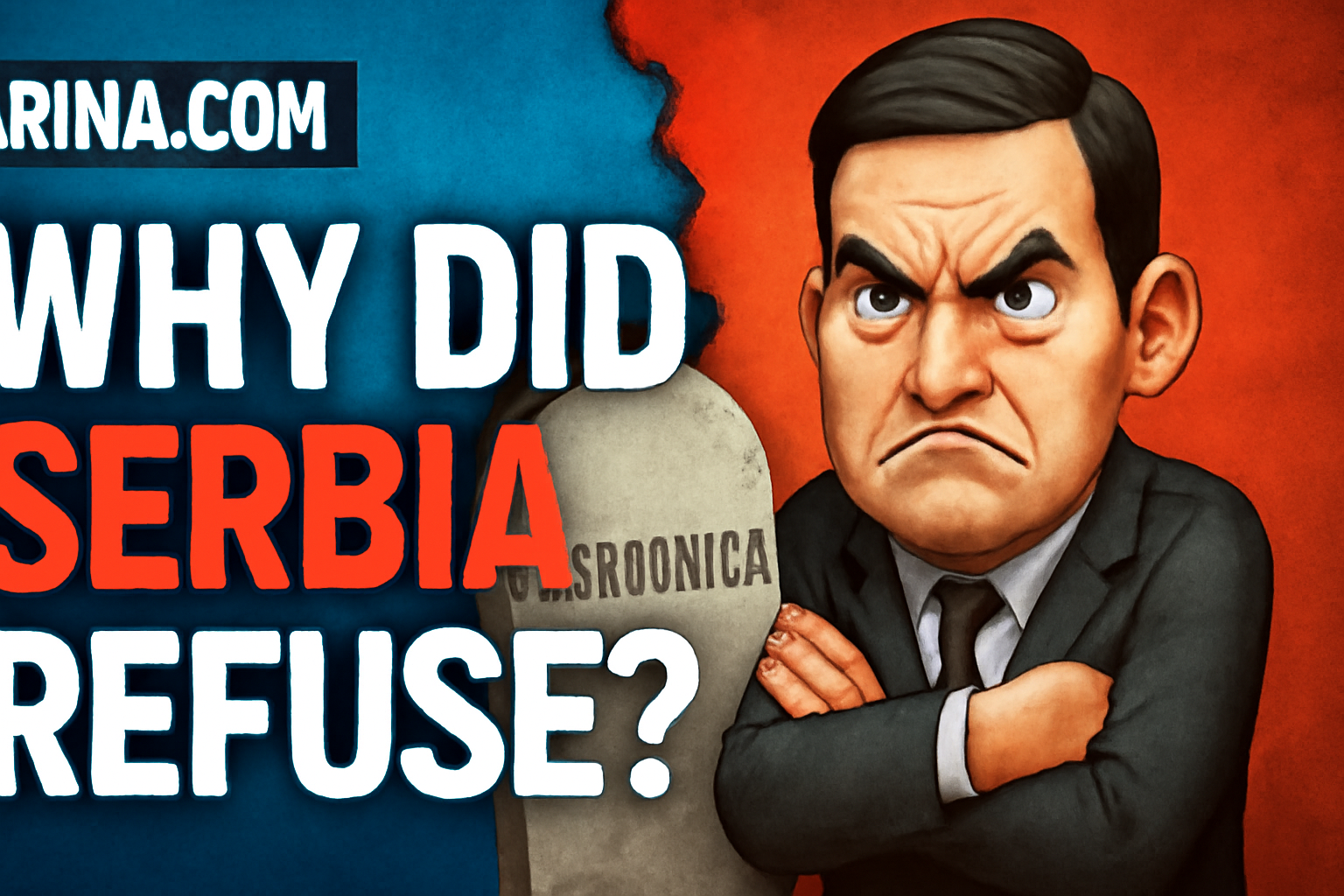Srebrenica and Serbia: The Never-Ending Drama!
Are you ready for another round of political tug-of-war over Srebrenica? Serbia has once again firmly said NO to collective guilt for the crimes in Srebrenica, while Bosniak member of the BiH Presidency, Denis Bećirović, accuses Serbia of refusing to acknowledge the truth about the genocide.
What’s going on?
At the UN General Assembly session, Bećirović delivered sharp criticism against Serbia, claiming that Serbia does not want to admit the truth about the Srebrenica genocide and refuses to renounce the ideologies that led to this horrific crime.
But Serbia, through State Secretary Nevena Jovanović, not only rejects these accusations but also states that imposing collective guilt on one nation is dangerous and only deepens divisions among the peoples of the region. Jovanović emphasizes that Serbia expresses respect for all victims of the wars, including those in Srebrenica, but commemorations should be places of remembrance and empathy, not platforms for ethno-nationalist narratives.
Why does this matter?
This debate is not just diplomatic wordplay. It directly affects relations between countries in the region and the already fragile reconciliation process. While Europe and the international community try to maintain stability in Bosnia and Herzegovina, such statements and contradictions only remind us of old wounds and prevent them from healing.
The European Parliament steps in
It’s not just Bećirović in the game. The European Parliament also reminded everyone of the importance of remembering Srebrenica and the failures of the international community. Members warned that the world has not learned the lesson from the tragedy and that there is a danger of relativizing the crimes. The message is clear: Europe must not fail the citizens of BiH again and leave them stranded.
What does Serbia say?
Serbia has repeatedly expressed respect for all victims of the wars in the former Yugoslavia. However, it rejects collective guilt and insists on a policy of peace and stability. State Secretary Jovanović says that remembering the victims should be a bridge that connects, not a reason for new divisions.
The bottom line?
This political soap opera around Srebrenica continues, and its players show no signs of backing down. While some demand recognition and justice, others defend themselves against collective guilt and accusations. Meanwhile, ordinary people in the region remain trapped between a past and a future that is unclear.
If you think this is just another political show, think again. This topic touches the core of identity, justice, and reconciliation. What about you? Who do you think is right? Or maybe it’s time for all of us to stop fighting and finally move forward? Drop a comment, let’s see who has the craziest theory about all this!
This is just the beginning of a big debate. Follow us for more news and analysis on the most important topics in the region.







